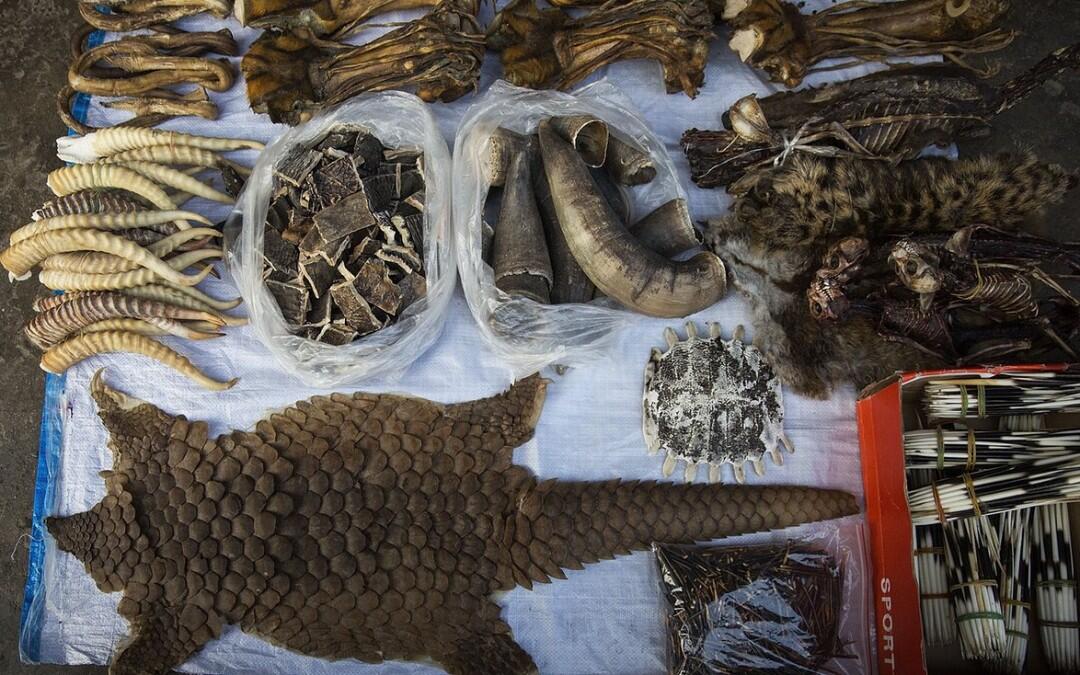Animals, according to many traditions, were once protected from a global flood by entering the shelter of an ark.
Today, many of those same animal species face a new catastrophic flood, but this time the deadly downpour is caused by humans. Animals around the world confront a rain of bullets, poisonings, traps, and snares.
Some of the most emblematic animals on this planet – tigers, elephants, rhinos – are closer to extinction than salvation.
But if beauty is fast disappearing from the world, what of the beasts? Posters of the scaly anteater, aka the pangolin, hang on few bedroom walls, but it is possibly the most hunted creature on earth.
In May 2015, police in Kohima, India, seized nearly 10 tons of pangolin scales – just one of many such seizures. Up to 100,000 pangolin are killed every year for their scales, which fetch as much as $3,000 a kilo in Asian markets where they are believed to possess magical powers.
And there are others.
Pythons, antelopes, turtles, and numerous bird species provide a roll call of animals not happily going two by two to their safety, but towards oblivion, one by one.
We have to act quickly to protect and conserve biodiversity on this planet.
That means chasing down the criminals and ending the unconscionable trafficking of these vulnerable species; but it also means demand reduction and offering alternative livelihoods to local communities involved in the trade.
The United Nations Office on Drugs and Crime argues that countries need to swap fines and non-custodial sentences for serious prison terms. Terms of four years or more can spark the use of the UN Convention against Transnational Organised Crime – if adopted by countries.
This effectively creates a global network of countries prepared to share information, undertake joint operations and offer invaluable legal assistance.
Countries and inter-governmental organisations appear to be listening. Last weekthe European commission launched an action plan that called for member states to introduce prison terms of more than four years. The plan also recommends that the European Union encourage countries to act through negotiated trade policies, something which the US had previously pioneered.
But this does not curb the heavy demand that fuels the trafficking.
Changing ingrained views, and embedded perceptions, are an essential part of tackling the demand side, but young people must be our target audience. Fragile animal species will only be saved if young people and future generations reject mysticism and embrace science.
All of these actions can and must be done.
We cannot, however, forget the communities and societies who have lived side by side with animal populations for tens of thousands of years. The world adopted, in September last year, the 2030 sustainable development agenda, which seeks to provide security and prosperity for all.
If we are to sustain animal species and promote sustainable development for exposed communities, alternative livelihoods must be offered as a means to achieve both goals. Such a change can empower communities to live in harmony with their surroundings and ensure their sustained development.
Work with farmers cultivating coca plants in Latin America already shows that promoting suitable and profitable alternatives is a reality that can and does work. It must become a central element of our anti-wildlife crime activities.
Cooperation is a powerful ally. UN agencies, Cites and its partners are all working together to ensure there is action on the ground where it matters.
Today is world wildlife day and yet another year has passed and the species pool has been further drained. It is not an inexhaustible supply.
We have to act now, or we may have to build another ark to protect this planet’s wonderful diversity not from a flood, but from ourselves.
Source: The Guardian











